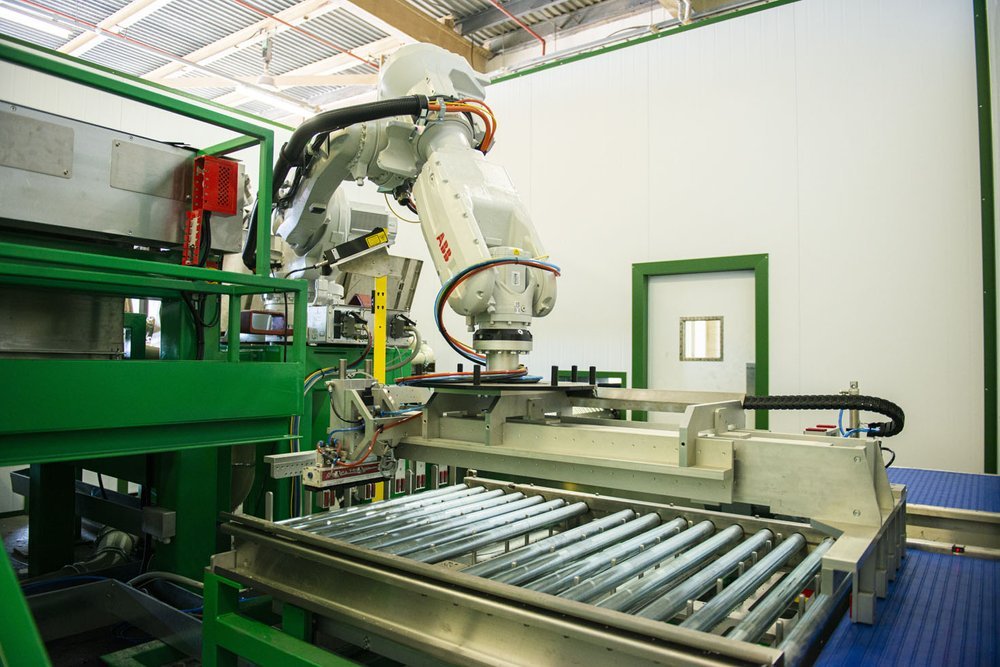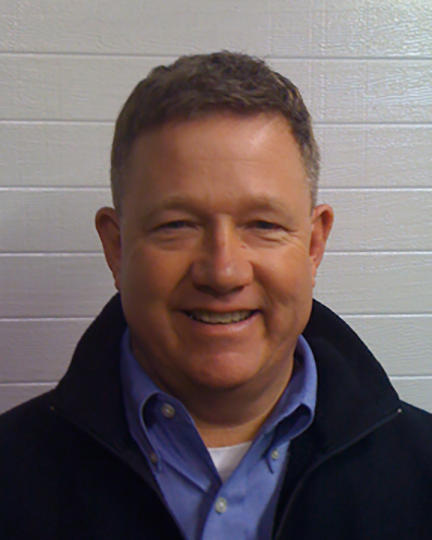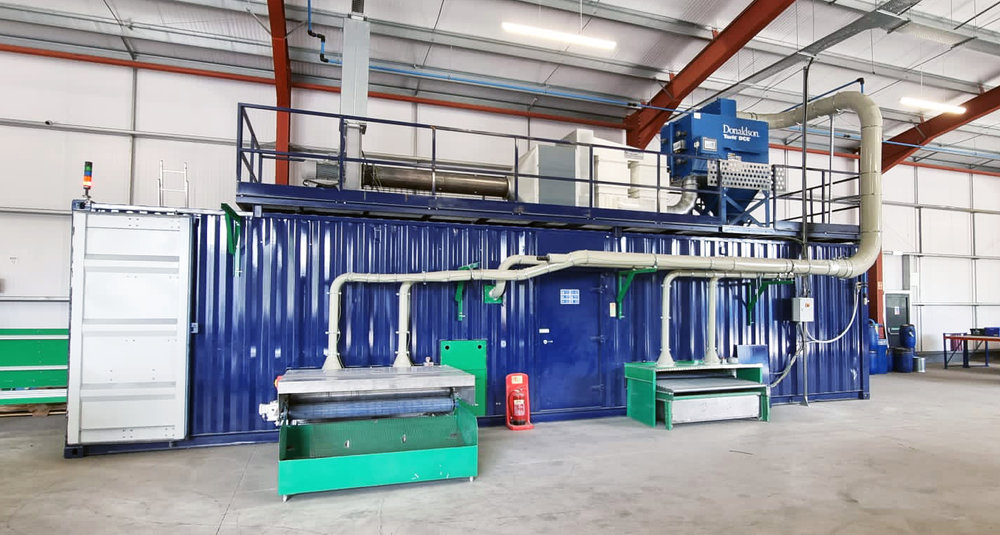By Holly Riddle

Photo: Provided.
Serial entrepreneur and Penn State alum Ned Eldridge knows how to turn trash into treasure. The president and CEO of eLoop — headquartered in Export, Pennsylvania, but with a location in Happy Valley — founded the electronics recycling service provider in 2008 and, since then, the company has recycled more than 70 million pounds of materials, keeping more than 21 million pounds of toxic metals from ending up in landfills. Now, the company has its sights set on changing the way the entire country recycles flat-panel hardware, using the power of AI to increase productivity to a mammoth degree.
Bringing a robot first to State College

Despite today’s success, eLoop experienced difficulties for its first few years, before Eldridge found the right niche.
“We were handling residential electronic scrap, and believe me, it was a very tough way to make a living,” said Eldridge. After six years of struggling for success, though, eLoop pivoted , from focusing on residential recycling to recycling business assets for corporations.
Eldridge added, “Now, not only do we handle residential electronics scrap, but we also handle a lot of B2B work, where we upcycle computer equipment, IT assets, communication gear, different types of monitors, PCs — all with the idea that we can refurb and resell this equipment.”
Today, about 70% of eLoop’s work is this B2B service, collecting business’s equipment, destroying their data and then refurbishing and reselling the hardware, with a team of about three dozen employees.
Some of the items to frequently make their way through the eLoop facilities? Flat-panel televisions and computer monitors.
“It’s a huge productivity improvement over current methods. That in itself gives us a significant competitive advantage in the marketplace.”
Currently, an eLoop employee can process about four flat-panel televisions in an hour. However, that number will soon increase 20 times over, with operators processing 80 flat-panel televisions per hour thanks to a new, AI-powered, automated, robotic recycling system called the FPD Pro (though Eldridge plans to give the robot a more personable name; he tossed out Nittany as a possibility). The new tech is the first of its kind and the eLoop location in State College will have the very first FPD Pro robot in the entire United States.
Faster, cheaper and more profitable
So how does the FPD Pro work? This video breaks it down.
“It’s a huge productivity improvement over current methods,” said Eldridge. “That in itself gives us a significant competitive advantage in the marketplace.”
Once the system is operational, Eldridge said eLoop will be able to collect flat-panel televisions and computer monitors from other recyclers from all over the region, including in New York, New Jersey, Maryland, Delaware, Virginia, West Virginia, Ohio and, of course, Pennsylvania. As those recyclers send their video displays to eLoop for processing, they’ll in turn reap the more affordable gate fees that will come from eLoop’s increased productivity — $0.10 per pound of materials processed versus competitor rates of $0.15–$0.20 per pound.
The team will ramp up productivity over a series of phases; in the first phase, Eldridge estimates eLoop will be able to process about 4.8 million pounds of hardware per year with a single shift. In the second phase, eLoop will increase employment and operate two shifts at the recycling facility, so as to process approximately 14 million pounds of hardware per year.
After eLoop proves the FPD Pro’s value, Eldridge expects other U.S. recyclers to follow the company’s lead.
“We’re the first ones to buy into it. We expect that once ours is set up, it’s going to be kind of a model, that other recyclers will come in from around the country to see it,” he said. “I will bet, once we prove the concept, they’ll be adopting the technology.”

Photo: Provided.
But until they do, Eldridge said, “nothing stops me from adding another machine in my operation or expanding to other geographies around the Northeast.” Even when running at full capacity with the one FPD Pro, eLoop will only be processing about 10% of all the flat-panel televisions that are recycled within the region, which means there’s ample opportunity for growth.
While some of the recycled flat-screen televisions and computer monitors can be refurbished and resold, though, there’s another valuable result to come from this process, one that will likely appeal to Happy Valley’s robust population of researchers.
“We stand to become a great source for scientists that want to recover rare earth minerals from these products,” explained Eldridge. “Rare earth minerals are scarce and need to be recycled, and they’re controlled primarily through mining operations in China. However, experts will tell you that there’s an awful lot of rare earth minerals that can be recovered through recycling old electronic equipment like cell phones, etcetera, so we hope to be able to establish that laboratory in State College as well.”
You can learn more about eLoop at https://www.eloopllc.com.

